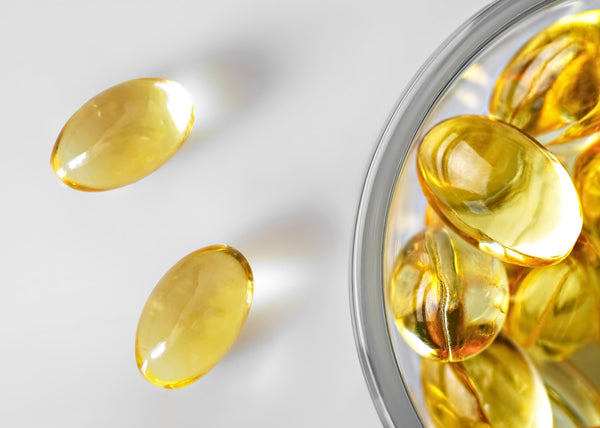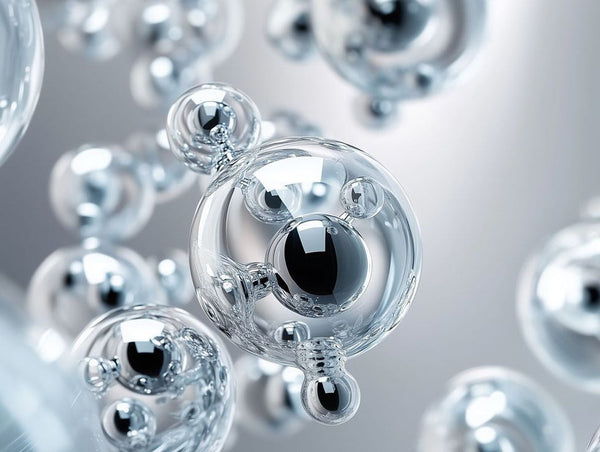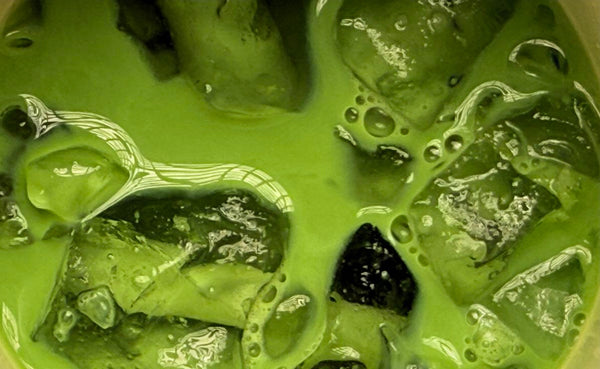Hot flashes are a common symptom experienced by many women during menopause. These sudden and intense feelings of heat can be accompanied by flushing, sweating, and a rapid heartbeat. While hot flashes are often associated with menopause, they can also occur in other situations, such as certain medical conditions or as a side effect of certain medications.
Understanding Hot Flashes
Hot flashes, also known as hot flashes, are episodes where a woman experiences a sudden sensation of heat, often accompanied by sweating and reddening of the skin. These episodes can last anywhere from a few seconds to several minutes and can range in intensity from mild warmth to intense heat. They can occur at any time of the day or night and can significantly disrupt a woman's daily life.
Hot flashes are a common symptom experienced by many women during menopause, but they can also occur in other situations. For example, some women may experience hot flashes during perimenopause, which is the transitional period leading up to menopause. Additionally, hot flashes can be triggered by certain lifestyle factors such as stress, caffeine consumption, or spicy foods.
Defining Hot Flashes
Hot flashes are thought to be caused by changes in hormone levels, specifically a decrease in estrogen production. Estrogen plays a key role in regulating body temperature, and when its levels fluctuate during menopause, it can lead to the development of hot flashes.
During a hot flash, the blood vessels near the skin's surface dilate to cool off, causing the characteristic flushing and sweating. The body's attempt to regulate its temperature during a hot flash can sometimes lead to a rapid heartbeat or feelings of anxiety.
Common Misconceptions about Hot Flashes
There are several misconceptions surrounding hot flashes. One common belief is that hot flashes only occur in menopausal women. While hot flashes are indeed a common symptom of menopause, they can also occur in women who are undergoing certain medical treatments or who have certain medical conditions.
Another misconception is that hot flashes are purely physical symptoms. While hot flashes do manifest in physical symptoms such as flushing and sweating, they can also have emotional and psychological impacts on a woman's well-being.
It's important to recognize that hot flashes are a natural part of the body's adjustment to changing hormone levels and are not a sign of weakness or inadequacy. Seeking support from healthcare providers and loved ones can help women navigate this transitional phase with greater ease.
Are Hot Flashes a Sign of Menopause?
Yes, hot flashes are often considered a hallmark symptom of menopause. Menopause is a natural biological process that marks the end of a woman's reproductive years. During this time, the ovaries gradually produce less estrogen, leading to various changes in the body. Hot flashes commonly occur as a result of these hormonal fluctuations.
The Connection between Hot Flashes and Menopause
The decrease in estrogen levels that occurs during menopause can disrupt the body's thermoregulation, leading to the development of hot flashes. While the exact mechanism behind this phenomenon is not yet fully understood, it is believed that estrogen plays a crucial role in maintaining a stable body temperature.
Other Possible Causes of Hot Flashes
Although menopause is the most common cause of hot flashes, there are other potential triggers as well.
Certain medical treatments, such as hormonal therapy for breast cancer or the removal of the ovaries, can induce hot flashes.
Certain medications, like antidepressants and pain relievers, may cause hot flashes as a side effect.
It's important to note that hot flashes can also occur in men, although less frequently than in women. In men, hot flashes are often associated with hormonal imbalances, such as those seen in conditions like hypogonadism or certain types of cancer. While hot flashes in men are less common and typically not related to menopause, they can still have a significant impact on quality of life.
Managing Hot Flashes
For women experiencing hot flashes during menopause, various strategies can help alleviate symptoms.
Lifestyle changes such as wearing lightweight clothing, using fans, and practicing relaxation techniques, may help reduce the frequency and intensity of hot flashes.
In some cases, hormone replacement therapy (HRT) may be recommended to help balance hormone levels and alleviate symptoms.
It's important for individuals experiencing hot flashes to consult with a healthcare provider to determine the underlying cause and develop an appropriate treatment plan. By addressing hot flashes proactively, individuals can improve their quality of life during this transitional phase.
Recognizing the Symptoms of Hot Flashes
Hot flashes are characterized by more than just feelings of heat. They can manifest in various ways, and the symptoms can differ from woman to woman.
Understanding the nuances of hot flashes can help individuals better recognize and manage this common menopausal symptom. While the most recognizable sign is a sudden sensation of heat, it's essential to note that hot flashes can also present with additional physical and emotional symptoms.
Physical Symptoms
Physical symptoms of hot flashes include:
- Sudden and intense heat
- Flushing of the skin
- Sweating
- Rapid heartbeat
- A feeling of warmth spreading throughout the body
- Chills following a hot flash
It's crucial to pay attention to these physical cues, as they can vary in intensity and duration.
Emotional and Psychological Symptoms
In addition to the physical symptoms, hot flashes can also have emotional and psychological effects. Many women report feeling
- Anxiety
- Irritability
- Mild depression during and after a hot flash episode
These emotional symptoms can significantly impact a woman's overall well-being and quality of life.
Emotional support and coping strategies play a vital role in navigating the emotional aspects of hot flashes. Seeking support from healthcare providers, loved ones, or support groups can provide valuable resources for managing the emotional toll that hot flashes may bring.
Uncovering the Causes of Hot Flashes
While a decrease in estrogen is a major factor contributing to hot flashes, there are other causes to consider as well.
Hormonal Changes and Hot Flashes
Hormonal changes, particularly fluctuations in estrogen levels, can trigger hot flashes during menopause. Estrogen helps regulate body temperature, and its decline disrupts the body's thermostat, leading to sudden feelings of intense heat. When estrogen levels drop, the hypothalamus (the part of the brain responsible for regulating body temperature) becomes more sensitive to slight changes in temperature, triggering a response to cool down the body.
This response often results in dilation of blood vessels and increased blood flow to the skin, causing the sensation of heat and flushing known as a hot flash. Hormonal fluctuations also affect neurotransmitters, which can further contribute to the occurrence of hot flashes.
Lifestyle Factors Contributing to Hot Flashes
Although hormonal changes play a significant role, certain lifestyle factors can also contribute to the occurrence and severity of hot flashes.
- Stress
- Smoking
- Excessive alcohol consumption
- A sedentary lifestyle
Making positive changes in these areas may help manage hot flashes more effectively.
Risk Factors of Hot Flashes
While hot flashes can occur in any woman going through menopause, certain factors may increase the likelihood and intensity of hot flashes.
Age and Hot Flashes
Age is a significant risk factor for hot flashes, with the majority of women experiencing them during perimenopause and menopause during the age of 45-55. Perimenopause refers to the transitional period leading up to menopause when hormonal fluctuations become more pronounced.
Obesity and Hot Flashes
Obesity has been linked to an increased risk and severity of hot flashes. The excess weight can affect hormone levels and make the body more sensitive to temperature changes, potentially exacerbating hot flash symptoms.
Hot Flashes & Menopause
Menopause and hot flashes often go hand in hand, but it's important to note that not all women will experience hot flashes during menopause, and the severity can vary greatly.
Tips to Manage Hot Flashes
While it may not be possible to completely prevent hot flashes, there are strategies a woman can employ to help manage them and minimize their impact on daily life.
- Stay cool: Dress in layers, use fans or air conditioning, and keep a cool drink nearby.
- Manage stress: Stress can worsen hot flashes, so finding effective stress management techniques, such as relaxation exercises or meditation, can help reduce their occurrence.
- Exercise regularly: Regular physical activity has been shown to reduce the frequency and severity of hot flashes. Engaging in activities such as brisk walking or yoga can be beneficial.
- Avoid triggers: Some women find that certain foods or drinks, such as spicy foods, caffeine, or alcohol, can trigger hot flashes. Identifying and avoiding these triggers may help manage symptoms.
- Consider hormone therapy: Hormone therapy, under the guidance of a healthcare professional, may be an option for women experiencing severe and frequent hot flashes.
Conclusion
Hot flashes are a common and often bothersome symptom experienced by many women during menopause. While they are closely associated with menopause, it's important to recognize that hot flashes can occur in other situations as well. Understanding the causes, symptoms, and triggers of hot flashes can help women better manage their symptoms and improve their overall quality of life during this transitional phase. By making certain lifestyle changes and seeking appropriate medical guidance, women can navigate this period with greater ease and comfort.



























 DOWNLOAD NOW
DOWNLOAD NOW
